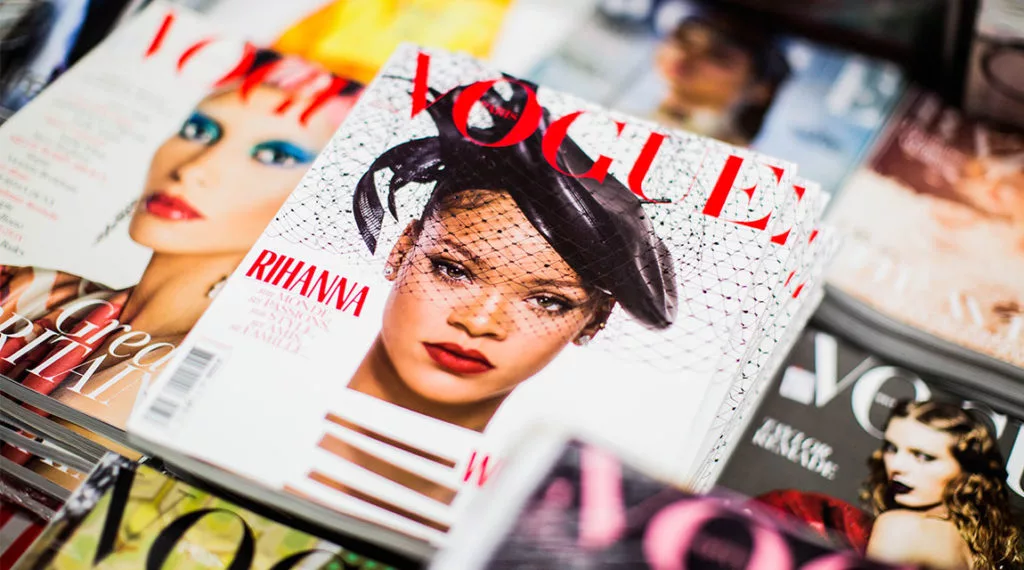For better or worse, celebrities have a powerful impact on how teens view themselves and how they see the world. In fact, it’s easy to underestimate how much celebrities influence teenage attitudes and behavior.
Celebrities can have a positive influence on youth. In fact, they can serve as role models. But famous people, whether they’re singers, actors, and other celebrities, can also provide unhealthy examples. In particular, celebrity influence on body image and substance use is often detrimental to teen mental state. This has led to an unprecedented need for adolescent mental health treatment across the country.
Teenagers need guidance on how to interpret celebrities’ influence. Adults can engage with kids around media. In addition, they, therefore, support how children process what they’re seeing and hearing. Moreover, parents and teachers can use celebrities’ stories as entry points into important discussions about health and personal choices.
The Impact of Media on Teen Body Image
Research shows that teen body image is shaped by many factors. These include friends and family, where the teen lives, and their cultural background. However, celebrity images have a profound impact on teen body image.
The Today Show and aol.com collaborated on the “Ideal to Real” body image survey. As a result, the survey found that 80 percent of teen girls compare themselves to images they see of celebrities. Moreover, among those girls, almost half said that celebrity images make them feel dissatisfied with the way they look.
Therefore, appearance is among teenagers’ top concerns, teen girls in particular. In her book Think: Straight Talk for Women to Stay Smart in a Dumbed-Down World, author Lisa Bloom reveals that 25 percent of young adult women in the US would rather win America’s Next Top Model than the Nobel Peace Prize.
How Celebrities Influence Teen Eating Disorders
Why does celebrity influence on teen body image matter? Because body dissatisfaction is linked to mental health challenges, including eating disorders, depression, anxiety, and low self-esteem. Studies find that young women who consume media with many images of an unrealistic “thin ideal” are more likely to exhibit symptoms of disordered eating. In addition, the Girl Scouts Research Institute found that nearly half of girls ages 13 to 17 wish they were as skinny as the models in fashion magazines.
Celebrity influencers play into this trend when they document their extreme diets or use language that can be triggering for those with eating disorders—such as when the entertainer Kim Kardashian recently expressed gratitude for being told she “looks anorexic.” News outlets covered a conversation between the Kardashians and the backlash it spawned. When celebrities minimize the severity of eating disorders such as anorexia or bulimia, or endorse taking unhealthy products to suppress appetite, they are emulating dysfunction.
Furthermore, for celebrities that are as exploited for their physical bodies as often as the Kardashian family is, they are shirking an opportunity to reframe the narrative around healthy weight. Hence, teens are told that looking skinny defines your worth. This messaging is superficial, heartbreaking for many, and can be deadly for those who suffer with life-threatening eating disorders.
And it’s not just teen girls who are affected. Research shows that young men also experience body dissatisfaction and depression as a result of viewing media images. And this body dissatisfaction can lead to unhealthy, excessive exercising among male teens.
Positive Celebrity Influence on Teen Body Image
However, some celebrities influence the body-image discussion for the better. For example, the singer Lorde called out a Photoshopped image of herself on Twitter. She noted that one photo showed her with “perfect” skin while the other was real. “Remember, flaws are ok,” she tweeted.
Other celebrities, including Rihanna, Beyoncé, Melissa McCarthy, and Jennifer Lawrence have spoken out against the ideals of beauty promoted by the entertainment and fashion industries.
“You shouldn’t be pressured into trying to be thin by the fashion industry, because they only want models that are like human mannequins. You have to remember that it’s not practical or possible for an everyday woman to look like that. It’s not realistic and it’s not healthy.”
—Rihanna
Substance Use and Celebrity Influences
Celebrities influence teens in other ways as well. When stars post images of themselves drinking or smoking on social media, they normalize substance use. Furthermore, they make it appear attractive and cool. This is one way that social media can have a negative impact on teen mental health.
Moreover, teens often idolize celebrities and want to be like them. Therefore, if they see images on Instagram of a favorite singer or actor using drugs or drinking, they might be tempted to do so as well.
For example, a University of Pittsburgh School of Medicine study looked at teenagers who frequently listen to music that contains references to marijuana. Subsequently, they found that these teens are more likely to use the drug than teens with less exposure to such lyrics.
In addition, for every hour that American teens listen to music, they hear more than three references to different brand names of alcohol. Researchers say that this might contribute to teen drinking. In addition, researchers at Dartmouth Medical School found that movie characters who smoke cigarettes influence teens to try smoking. Therefore, media influence on youth can contribute to risk-taking behaviors.

Does Your Teen Need Help?
We are here for you!
Have Questions?
Send us a message.
Continue Reading ▼
Celebrities Can Raise Awareness and Reduce Stigma
Many celebrities are open about their struggles with addiction and mental health. As a result, they help to reduce stigma and raise awareness. For example, before reportedly entering rehab after an apparent drug overdose earlier this summer, Demi Lovato released a song about relapse, titled “Sober.” Consequently, the song inspired young people nationwide to open up about their substance abuse and mental health challenges.
Lovato has struggled for years with drug abuse, alcoholism, depression, bipolar disorder, and eating disorders. While her recovery continues, her song helped increase understanding around relapse and addiction. For many people, relapse is part of the recovery journey. Furthermore, it provides an opportunity to address the underlying issues and build better coping strategies.
In addition, pop star singer Ariana Grande has been frank about her battle with PTSD and anxiety following a bombing at a concert venue while she was performing. Moreover, the model Bella Hadid has shared about her social anxiety. And England’s Prince Harry has spoken publicly about the trauma of losing his mother, Princess Diana. Subsequently, he and Prince William formed the Heads Together initiative. The project tackles stigma, raises awareness, and provides help for people with mental health challenges.
These are just a few of the many celebrities who have shared their struggles with the world. As a result, celebrities influence the public’s understanding of these issues.

How to Talk to Teens About Celebrity Influence
How does media influence teens? Because pop culture plays such a big role in teens’ lives, celebrities influence the way teens think and what they talk about. Therefore, parents can use celebrities’ experiences as avenues for talking about sensitive subjects.
Thus, celebrity anorexia cases offer opportunities to talk to teens about how dangerous the “thin ideal” can be. And they can discuss healthy ways to stay fit and eat well. Moreover, stars who speak out about coping with mental illnesses demonstrate that people with such diagnoses can be successful and happy.
Parents might ask teens what they admire about the stars they follow. What qualities do they want to emulate? Perhaps creativity, passion, or dedication? What can they learn from the lives of celebrities who have struggled with depression, anxiety, eating disorders, or substance use?
Some teens are upset when they find out about a celebrity’s struggles. Therefore, parents can offer a different viewpoint: Stars who share their stories are examples of courage, honesty, and authenticity. Moreover, their vulnerability makes them stronger. And they often receive tremendous support and love after opening up. In this way, they serve as role models for youth.
However, some celebrities are unable to overcome mental health conditions. The deaths this year of designer Kate Spade and television personality Anthony Bourdain brought renewed attention to mental illness and suicide. Therefore, the message for teens is that people who are suffering must seek professional treatment as soon as possible.
In conclusion, celebrities are really people. Thus, they experience real struggles. But because they are in the public eye, teens have the opportunity to learn from them. And parents can help them sort through the information and take away a healthy message.
Key Takeaways
- Celebrities have a powerful impact on how teens view themselves and how they see the world.
- A survey found that 80 percent of teen girls compare themselves to images they see of celebrities. Almost half of those reported that celebrity images make them feel dissatisfied with the way they look.
- Growing numbers of celebrities are speaking out against the ideals of beauty promoted by the entertainment and fashion industries. Many celebrities are open about their struggles with addiction and mental health. As a result, they help to reduce stigma and raise awareness.
- Celebrities are real people with real struggles. Teens can learn from their experiences, including when and how to seek help.
Frequently Asked Questions About Celebrity Influence
Celebrities can be good or bad role models for teens. Celebrities glamorize unhealthy fads and behaviors and encourage unrealistic body image standards. On the other hand, some celebrities choose to use their status to counteract harmful cultural messages, by reducing stigma around a particular issue or speaking out honestly about their own struggles.
Teens are in the process of determining their own values, beliefs and goals independent of their parents. It’s natural for teens to look up to celebrities, and celebrities who use their status responsibly can help shape the course of a teen’s life for the better.
Absolutely. Celebrities can inspire a young person to achieve goals beyond what they observe in their immediate community. They can motivate teens to engage with community causes and live a healthy lifestyle. Their impact is not limited to success stories. Celebrities can also be role models for how to get help for mental health issues or substance use disorder.
The best role model for a teen is someone with a passion for what they do, solid values, and the ability to inspire others. Any person who can connect with a teen in these ways can be a role model—whether it’s a parent, a coach, a neighbor, or a distant celebrity.
Sources
Pediatrics. 2016 Jul;138(1).
J Applied Business Research. 2013 Jan; 29(1):45–50.
Psychol Bull. 2008 May;134(3):460–76.
J Abnormal Psychol. 103: 836–840.
Cogent Social Sci. 2016; 2(1).
J Soc Clin Psychol. 2008 Mar; 27(3): 279–310.
Pediatrics. 2009 Jul; 124(1): 135–143.
Addiction. 2010 Mar; 105(3): 515–523.
Addiction. 2012 Mar;107(3):557–66.






